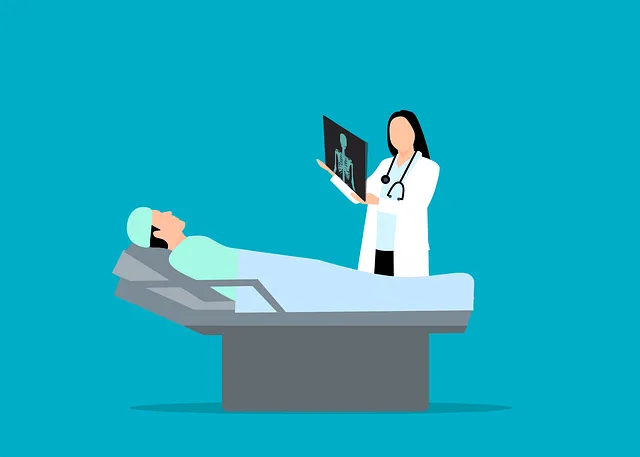In relationships, unaddressed pain from conflicts or hurts can hinder growth and intimacy. Kaiser Marriage and Family Therapists emphasize the importance of recognizing emotional pain's signs and effects for post-divorce healing or revitalizing strained partnerships. They employ kind conflict resolution strategies to encourage open communication, empathy, and mutual understanding, fostering a healing environment. Through these interventions, individuals learn healthy emotional processing, rebuild trust, and transform pain into personal growth catalysts. Effective communication, empathy, self-compassion, forgiveness, and resilience building are key tools advocated by Kaiser therapists for healing relationship wounds and cultivating healthier connections.
Transforming hurt into healing is a powerful journey essential for cultivating healthy relationships. This article, crafted by a Kaiser Marriage and Family Therapist, delves into the intricate process of navigating relationship pain. We explore strategies like understanding the impact of hurt, fostering empathy and self-compassion, implementing effective communication, and cultivating forgiveness. Additionally, we discuss building resilience and rebuilding trust, offering practical guidance for personal growth and renewed connections.
- Understanding the Impact of Hurt in Relationships
- The Role of Communication in Healing
- Cultivating Empathy and Self-Compassion
- Strategies for Forgiveness and Growth
- Building Resilience and Nurturing Trust Again
Understanding the Impact of Hurt in Relationships

In every relationship, conflicts and hurts are inevitable. When left unaddressed, these issues can fester and create deep wounds that hinder growth and intimacy. As a Kaiser Marriage and Family Therapist, understanding the profound impact of hurt is crucial. It often serves as a catalyst for significant change, either leading to stronger bonds or, unfortunately, dissolution. Recognizing the signs of emotional pain and its effects on individuals and the dynamics between them is essential in navigating the post-divorce healing process or even in revitalizing a strained partnership.
The way hurt manifests varies from person to person, making it vital for emotionally intelligent therapists to employ conflict resolution strategies kinder and gentler than traditional methods. This approach encourages open communication, empathy, and mutual understanding, fostering an environment conducive to healing rather than further damage. Through these therapeutic interventions, individuals can learn to process their emotions healthily, rebuild trust, and ultimately, transform their pain into a catalyst for personal growth and renewed connection.
The Role of Communication in Healing

Effective communication is a powerful tool for transforming hurt into healing in relationships. As a Kaiser Marriage and Family Therapist, facilitating open dialogue is often the first step towards resolution. Encouraging partners to express their feelings honestly and actively listening to each other’s perspectives creates a safe space for vulnerability. This process allows underlying issues to surface, enabling couples to address and work through their pain.
The benefits extend beyond individual growth; improved communication strengthens the bond between partners. By employing kinder and gentler therapy techniques, conflict resolution strategies become more accessible. Parents who seek parenting skills training can also learn to navigate family dynamics with increased empathy, ensuring that hurt doesn’t escalate but rather serves as a catalyst for deeper understanding and healing.
Cultivating Empathy and Self-Compassion

Cultivating empathy and self-compassion are powerful tools for transforming hurt into healing in relationships, as recommended by Kaiser Marriage and Family Therapists. Empathy involves stepping into another person’s shoes to understand their feelings and perspectives, fostering a deeper connection that can mend even the most broken bonds. This requires active listening, non-judgmental attitudes, and a genuine desire to comprehend and validate another’s emotions.
Self-compassion, on the other hand, is about extending kindness and understanding towards oneself, especially in times of pain or struggle. Adolescent Counseling Centers often emphasize this as a foundational step in healing from relationship trauma. By embracing self-compassion, individuals can better process their own emotions, make healthier choices, and avoid re-traumatizing patterns. This inner work is crucial for anyone seeking a therapist for relationship issues at Kaiser Health Therapist or considering family trauma healing retreats.
Strategies for Forgiveness and Growth

Forgiveness is a powerful tool for transforming hurt into healing within relationships, as endorsed by Kaiser Marriage and Family Therapists. It involves a conscious decision to release resentment and anger towards the person who caused the pain. This process doesn’t mean forgetting or excusing the hurtful behavior; rather, it’s about choosing not to let those negative emotions control your life any longer. Strategies for forgiveness can range from traditional religious practices to holistic wellness approaches like emotional freedom technique (EFT) positive psychology interventions, which focus on reframing negative thoughts and cultivating gratitude.
Anger management workshops, accessible through Kaiser mental health services, can also aid in processing and managing the intense emotions that often accompany hurt. By learning effective coping mechanisms, individuals can prevent retaliation and create a path towards personal growth. Incorporating these strategies into your life encourages emotional resilience, fostering healthier relationships built on understanding, compassion, and forgiveness.
Building Resilience and Nurturing Trust Again

Building resilience is a crucial step in transforming hurt into healing within relationships, as recommended by Kaiser Marriage and Family Therapists. After experiencing pain or trauma, individuals often find themselves vulnerable and cautious. This newfound caution can be a shield against further harm but may also prevent new connections from forming. Through dedicated practices like mindfulness, effective communication, and seeking professional help through affordable counseling sessions, one can gradually rebuild trust and strengthen their emotional resilience.
Nurturing trust again is an essential part of the healing process. It requires open dialogue, active listening, and a willingness to be vulnerable with a partner or family members. Engaging in parenting skills training or participating in family trauma healing retreats can provide safe spaces for these discussions, fostering deeper understanding and bond. With time and effort, individuals can learn to navigate conflicts constructively, cultivate empathy, and create a supportive environment that encourages growth and healing for all involved.
Hurt in relationships can be a powerful catalyst for healing and growth, as demonstrated by the strategies outlined by Kaiser Marriage and Family Therapists. By fostering empathy, practicing self-compassion, embracing effective communication, and implementing forgiveness, individuals can transform painful experiences into opportunities for personal development and stronger connections. Building resilience and reconnecting based on newfound trust is the final step towards a more fulfilling and harmonious relationship.






